Disciplining Your Child -- When to Start
Disciplining Your Child -- When to Start
I was 9 when this amazing bond got created between me and my cousin. She was just a baby. I used to be her favorite person (apart from her mom of course). When she was 2-3 years old, she used to tell her elder sister that she wouldn’t go to her, as I picked her up in a better manner. She was seriously good for my ego :-D :-D
Since then, it has been many babies - to hold, to love, to care for, to learn from. Sometimes, I have seen them growing too closely, sometimes I have heard about it. (Trust me, I am too lucky to have such great reporter moms around me ;-) ) And in due course I got my little bundle of joy, who is now infamous for spreading "contents" of all sorts of bundles all over the house. Most of the times it is his toys, but then there are edibles, drinkables… don’t ask, the house is a mess.
So with all this experience under my belt, my observation is, your role as a "disciplinarian" starts early. As early as 4-6 months. For starters, it could be a simple “no-no”, an animated “very good”, or small acts which communicate some tough love in case that's required. I have seen, that who wait for the child to grow up and become more understanding, are the ones who suffer the most, along with the child.
That’s just an account of a seven-year-old mother. Her experience could be valuable for growing parents. Indian ancient scriptures might have suggested that you should shower your kids with boundless love till they are five, and then scold them till they are ten and make them your friends when your shoe fits them, but some of the modern age parents might have been perceiving and applying those suggestions incorrectly.
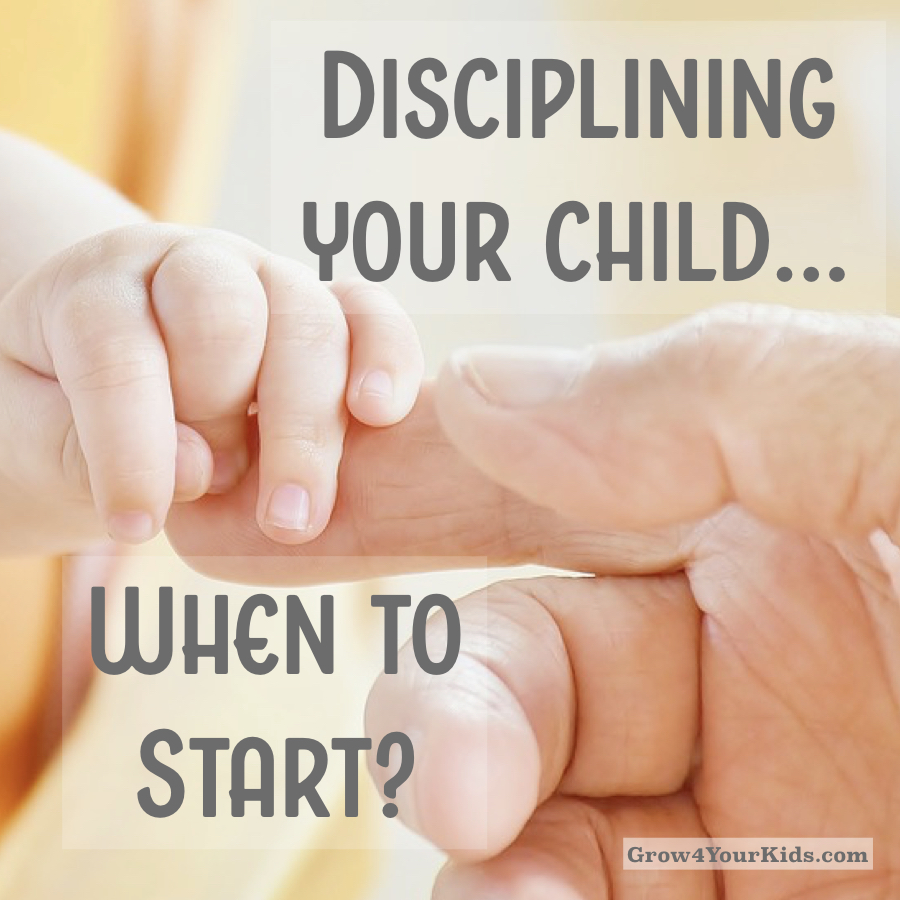
While you shouldn’t be too strict on or harsh with your tiny tots, it is still important to tell them what’s right and what’s not, to show them the difference via a different set of reactions reserved for particular behaviors.
Maybe your little one would just laugh, maybe you feel they simply ignore you, but be rest assured, it creates a difference. Talk to them, tell them what they did was wrong (or right, if that is the case); no matter how futile it seems, keep trying to converse with them.
And while some futile attempts are okay, it is quite important to draw a line. Your line could be different from other parents, but there should be things your child understands are not acceptable. Just not acceptable. To ensure that understanding, read. It helps. There is amazing expertise in the field which we can utilize. You could even consult a child counselor if you think that’s required. Don’t let any age-old Taboos affect your decisions when it comes to your children’s well being, happiness and future.
The seven-year-old mom shares:
I read that when your toddler does something that’s not acceptable, just leave him or her in a safe zone, which should give him or her a feeling of being isolated, punished for bad behavior. The duration should be really less of course. When my son was two, we left him for about 2 mins in his cot if he hit anyone. We had to do it just about thrice… he stopped hitting.
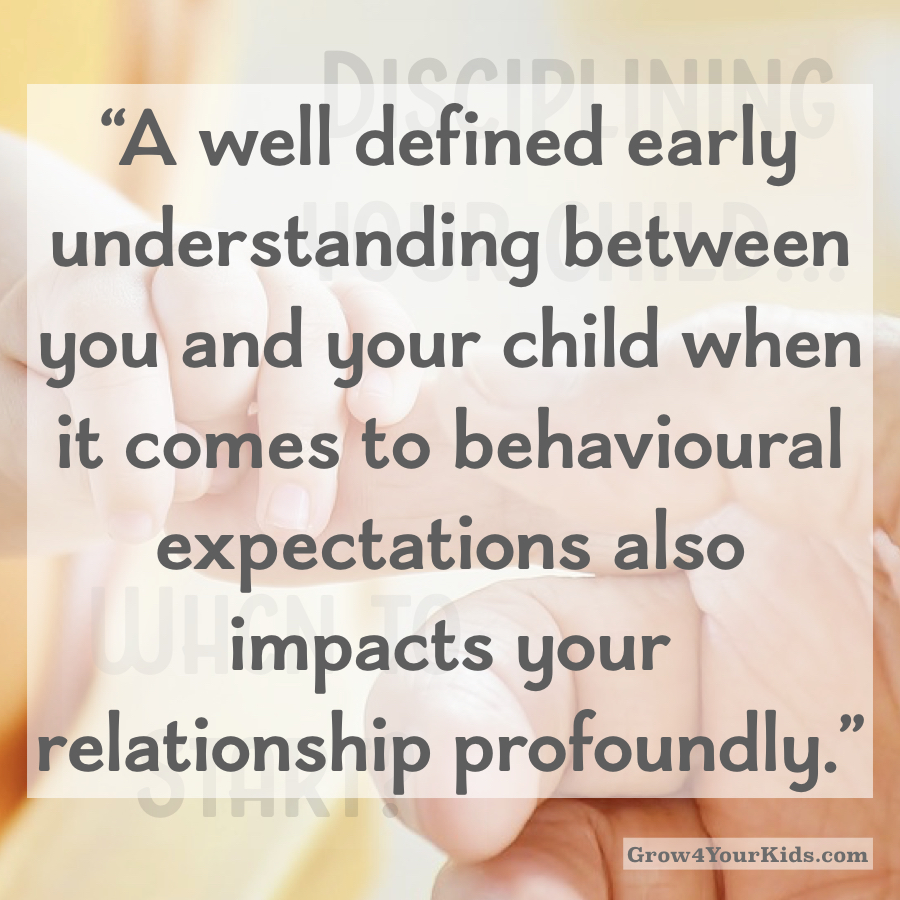
The a thing to understand here is that you have to start early. Don't wait for your child to grow up, thinking that s/he will "start understanding” once s/he is grown up. The more you wait, the more difficult it will be for you to explain, as well as your child to understand your expectations. You can not one day all of a sudden tell a child even if s/he has become a four-year-old, to not do something which s/he has been thinking is an okay thing to do.
For example, throwing a tantrum to get a new toy in a store could be okay, but insisting to bring back a toy when visiting another child’s home should not be okay at all. Not only does it cause stress for other kids (and maybe their parents, when they are forced to ask their child to share* for general courtesy), but it inculcates a very wrong attitude in your child — that’s it’s okay to take others’ things, even when they don’t want to share. This could dangerously mark a starting point to a lot of bad habits. Snatching, bullying, even stealing.
A well defined early understanding between you and your child when it comes to behavioral expectations also impacts your relationship profoundly. If you only start disciplining him or her after the social pressure is forcing you to do it, it would be too late. Your child will be not just be confused with your new & different expectations, but s/he might also start to dislike, even distrust you. So start now, before it’s too late.
Our seven-year-old reporter mother goes further and nails it:
Once the kids have started hitting others, are habitual of hitting, rather have started to enjoy this hitting business, after that even if you do try to stop them and do it successfully, they stop because of the fear of being caught red-handed. Their inclination, their attitude towards other kids is really spoilt. And it only improves once they develop deeper understanding, which might take a long while and is bound to leave scars. There are many bullies who have grown up to be sensitive individuals but find the guilt from past very difficult to carry.
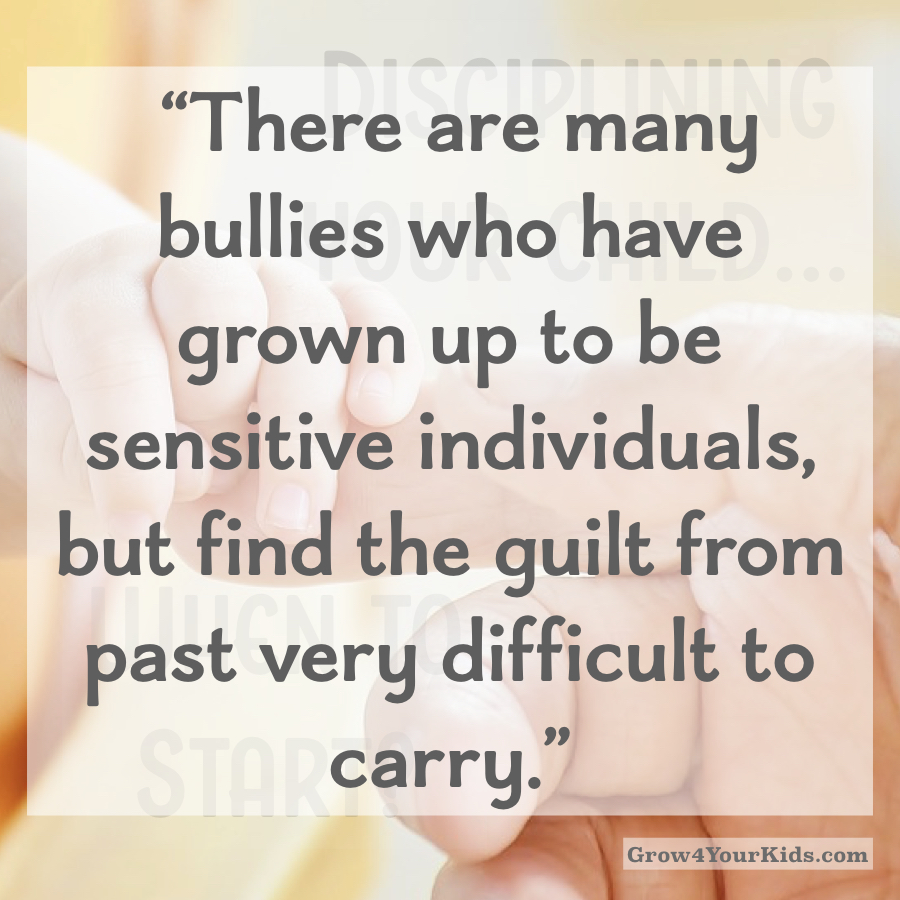
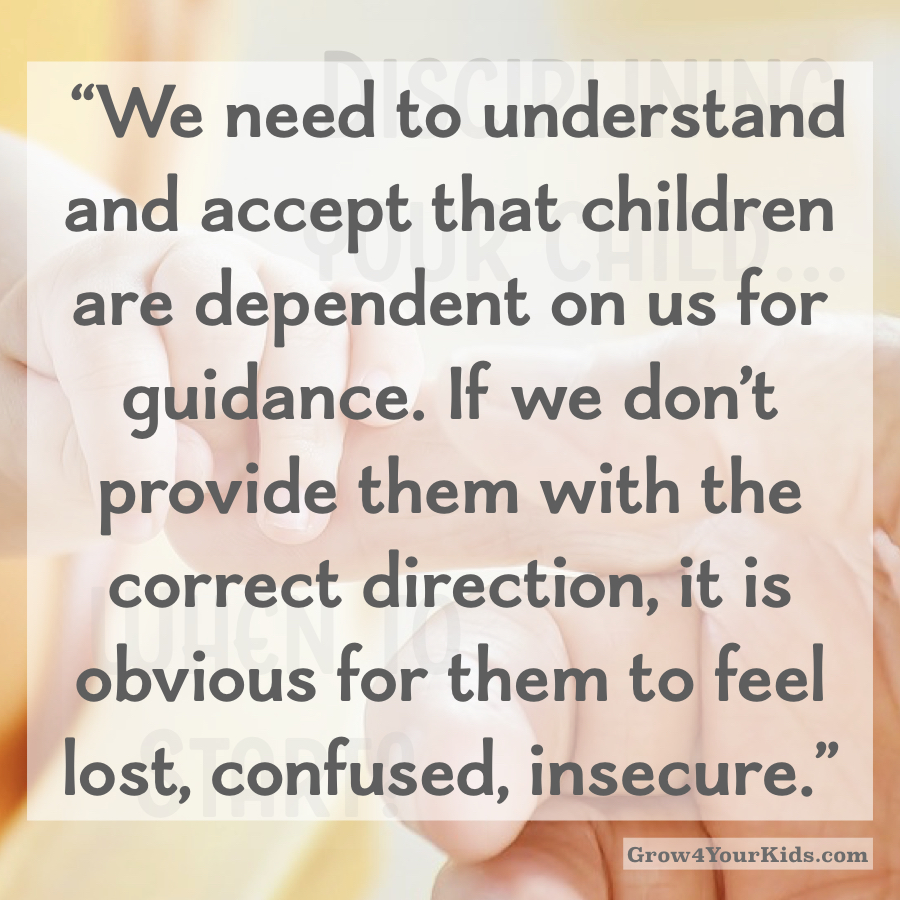
We need to understand and accept that children are dependent on us for guidance. If we don’t provide them with the correct direction, it is obvious for them to feel lost, confused, insecure. But with like so many other things, sometimes these directions, this valuable guidance will have to take different forms - like expressions of tough love.
Kids are intelligent, but their intellect is still developing. Even after differentiating between the right and wrong, they sometimes would need our help to implement the ideas they are being bombarded, counselor. (It sure feels like that sometimes to them.)
Parents are feeling bombarded too. The contemporary parenting styles, the parenting demands are nothing like what they have experienced themselves as kids. And this leads to extremes. Some parents are too critical and harsh disciplinarians which leads to a suffocating childhood. At the same time, there are others who think kids would just learn everything by themselves or maybe at school. This causes kids to think they have got somewhat of free rein on their lives. If such kids have the slightest negative inclinations, it is a chaos in general.
So, avoid extremes and try to find the right balance for you and your kids. And when to start stopping them from hitting, bullying, pinching, etc.? Well, as soon as they start doing it. There are age-appropriate ways to play your role of disciplinarian. Figure out your own unique way, or copy from someone tried and tested ideas, just don’t shy away from this. You have signed up for it after all. For those who think they didn’t, your child needs you to do it. So, please let’s try to give our best performance.
Happy Parenting!
* Experts clearly mention that we shouldn’t expect our young ones to be keen on sharing, and definitely should not force them to share. So, we should not expect the other kids to be keen on sharing with our child. And if you find a parent who actually forces the other children (including yours) to share stuff with their uncontrolled little tykes, and you are quite overwhelmed with such behavior, please share this article with them. You are welcome. :-D
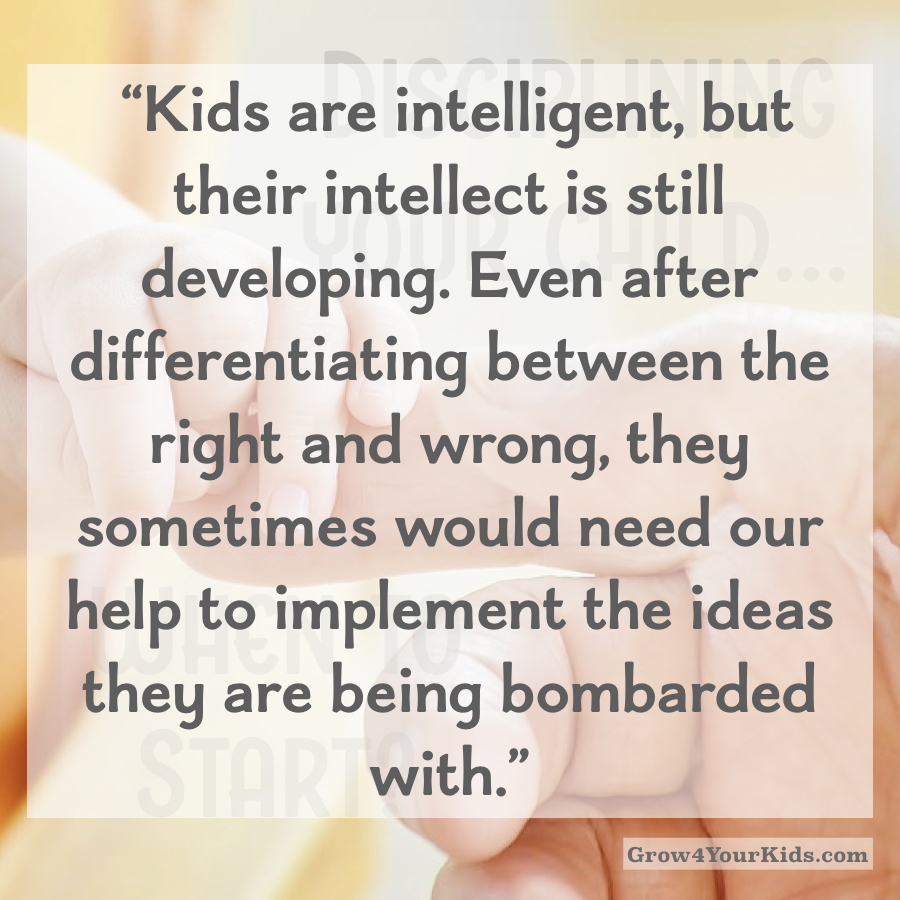
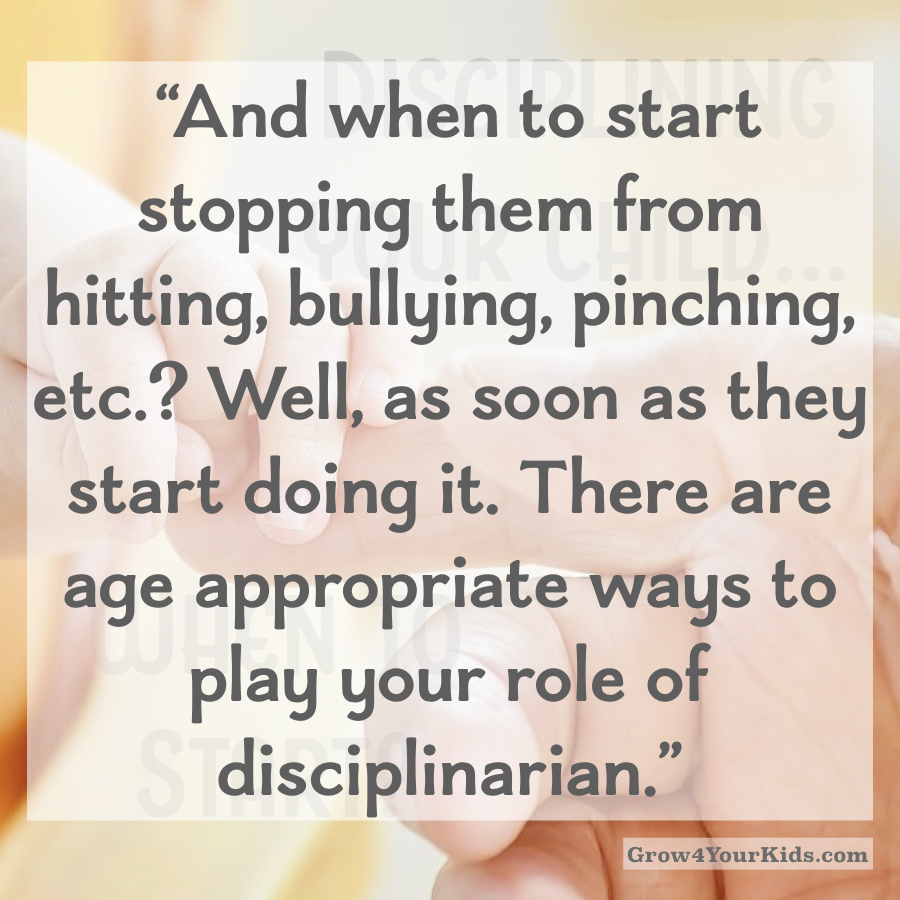



Comments (Facebook)